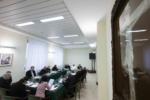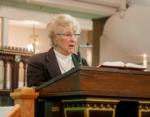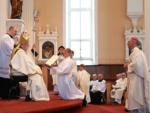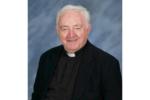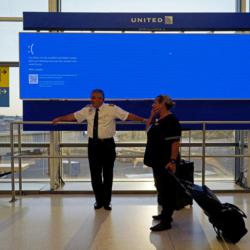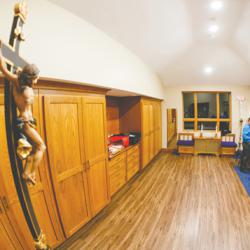Acting to end abuse is 'non-negotiable,' pope says
VATICAN CITY (CNS) -- The Catholic Church and all its members must end silence about clerical sexual abuse and ensure cases are no longer covered up, Pope Francis said, adding it is "non-negotiable."
Meeting Nov. 18 with Italian diocesan and regional representatives of safeguarding programs and listening centers, the pope said it also is essential to "pursue the ascertainment of the truth and the restoration of justice in the ecclesial community, including in those cases where certain behaviors are not considered crimes by the law of the state, but are under canon law."
Cardinal Matteo Zuppi of Bologna, president of the Italian bishops' conference, presented Pope Francis with the conference's second annual report on safeguarding, covering the year 2022.
While 81% of calls to the listening centers were to seek information, the rest were to report cases of abuse to church authorities, said the report, compiled by researchers at the Piacenza campus of the Catholic University of the Sacred Heart. The reports involved 54 presumed victims and 32 alleged perpetrators -- 31 men and one woman -- almost evenly divided in thirds between priests, religious and lay church employees.
The number of diocesan or interdiocesan listening centers increased by 20 to 186 in 2022, the report said, and now cover 190 of the 206 dioceses or church territories.
The group's meeting with Pope Francis took place on the Italian church's national day of prayer, repentance and education on clerical sexual abuse.
The goal of the Catholic community, he said, must be to "protect, listen and heal."
The whole Catholic community must be involved in the protection of minors and vulnerable people, he said, "because the action of protection is an integral part of the church's mission in building the kingdom of God."
"Listening to the victims is the step necessary for enabling a culture of prevention to grow," the pope said, and that culture must include the education of the whole community, the implementation of procedures and good practices and vigilance.
"Only listening to the pain of people who have suffered these terrible crimes paves the way to solidarity and drives one to do everything possible to ensure abuse is not repeated," he said. "This is the only way to truly share what has happened in a victim's life so that we feel called to personal and community renewal."
Efforts to help survivors heal are "a work of justice," the pope told the group. "Precisely for this reason it is important to prosecute those who commit such crimes, especially in ecclesial contexts."
The perpetrators themselves "have the moral duty of a profound personal conversion that leads to recognition of their own vocational infidelity, to the resumption of the spiritual life and the humble request for forgiveness from the victims of their actions," he said.
Pope Francis asked the centers to do everything possible to ensure that "those who have been harmed by the scourge of abuse may feel free to turn with confidence to the listening centers, finding that welcome and that support that can soothe their wounds and renew their betrayed trust."
Also, he said, efforts must continue to train priests and all pastoral workers in safeguarding so that "a genuine cultural change is promoted, placing at the center the smallest and most vulnerable in the church and in society. This ecclesial action of yours can foster the growth of attention in Italian society as a whole on this scourge that unfortunately involves many, too many, minors and adults."




